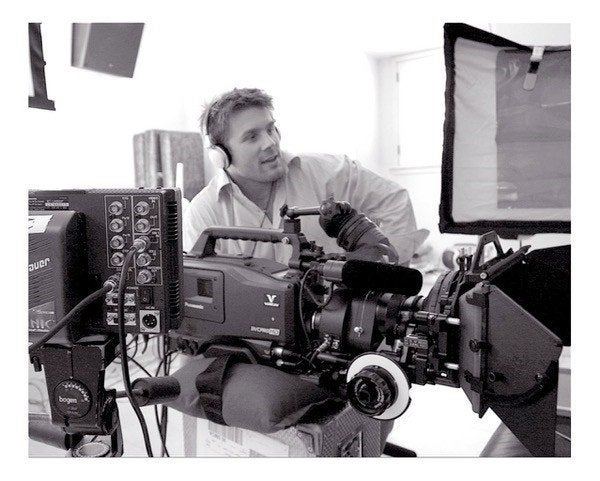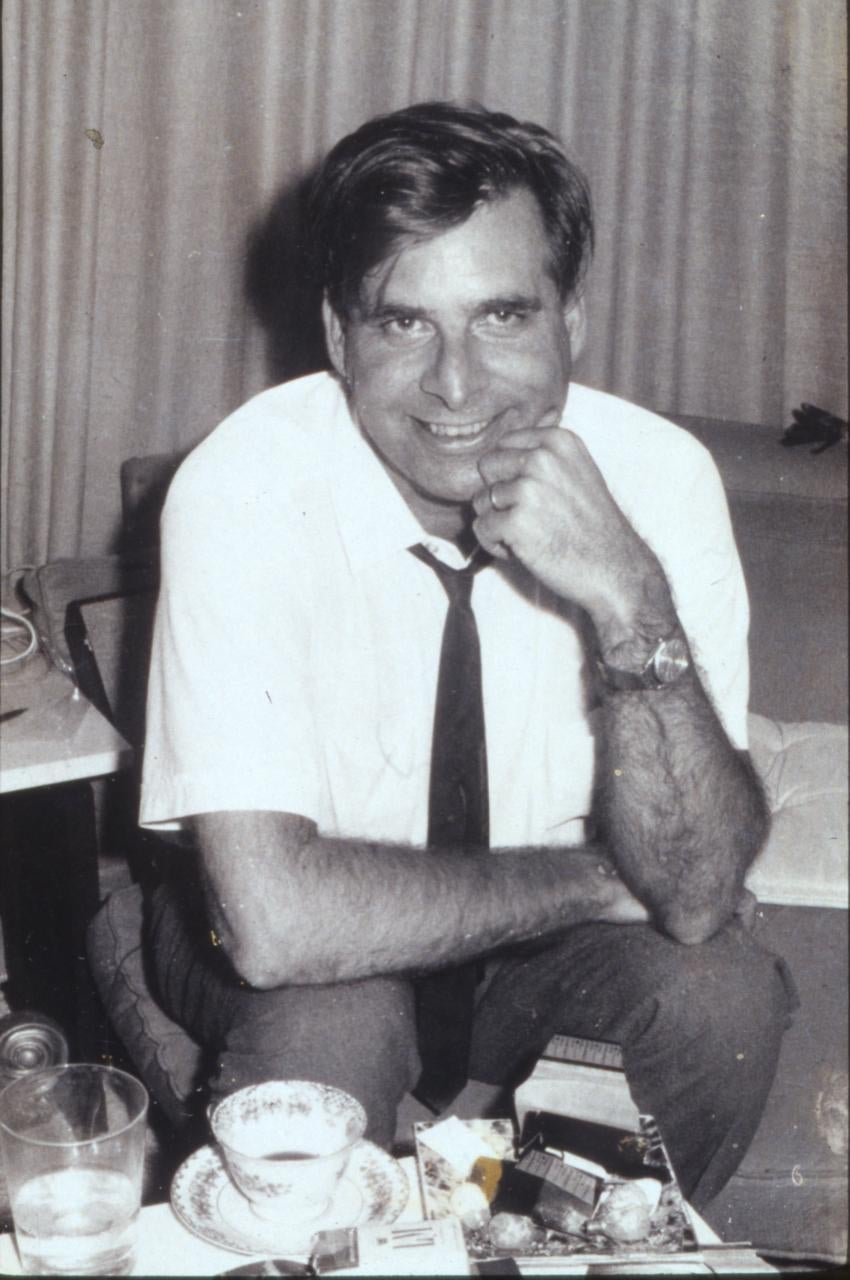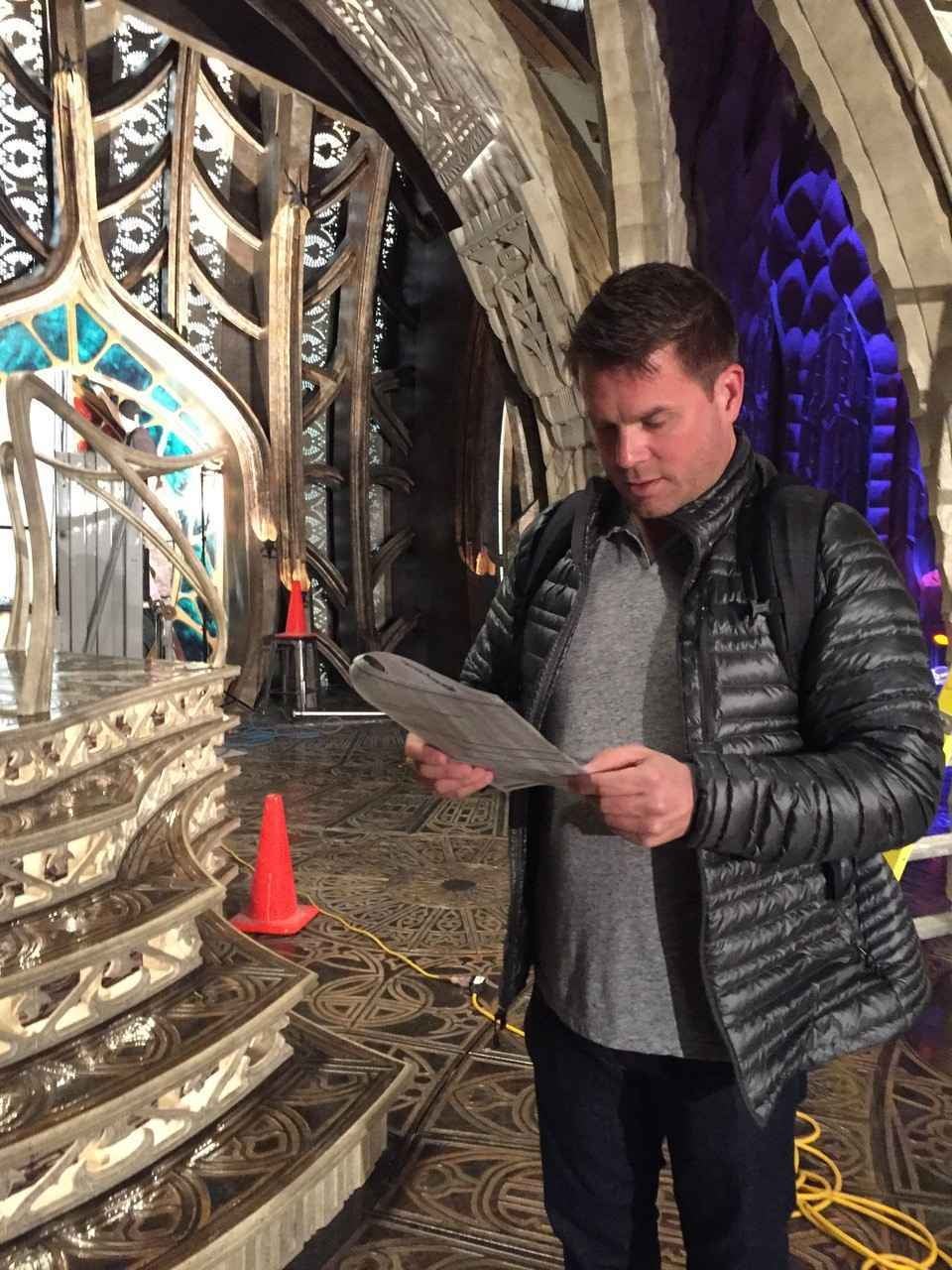Gene Roddenberry, best known as the creator of Star Trek, was born 100 years ago today. Though he died in 1991, Roddenberry’s vision of a better future lives on through the Star Trek franchise and his son, Eugene “Rod” Roddenberry, the CEO of Roddenberry Entertainment. But it wasn’t always clear that Star Trek would still be around at the time of Gene’s centennial. Star Trek: Enterprise went off the air in 2005, and, for the first time since 1987, there were no new plans for a Star Trek television show in place. Now there are five Star Trek series in production for the Paramount+ streaming service, with more in development, and for his part, Rod Roddenberry never doubted that the franchise would return.
Videos by ComicBook.com
“I 100% had no doubt it would come back, but that’s not because I’m some great thinker or knew something people didn’t,” Roddenberry tells ComicBook.com via Zoom during an interview to commemorate his father’s 100th birthday. “The only thing I knew, which is what I think most fans knew, which is Star Trek has way too important of a message for it to ever go away. It had a lot to say in the ’60s when it came out, and sadly, it has a lot to say today still.”

Roddenberry Entertainment doesn’t own Star Trek as those rights rest solely with ViacomCBS. But Rod, through the company, is a producer on each of these new Star Trek shows. As head of the company that bears the family name, Rod sees it as his duty to ensure his father’s philosophy remains the heart of the Star Trek franchise.
“I attach the name Roddenberry to all of our entities because I’m very proud of my father and the name and what the name represents,” he explains. “The name represents the ideas instilled in Star Trek. The backbone philosophy of all Star Trek is the IDIC philosophy, infinite diversity from infinite combinations. And the idea is to truly appreciate everything that is different, both in form and in thought and idea.
“The crew of the Enterprise and the ships of the Federation, they’re not out there seeking weird looking aliens,” he continues. “They’re seeking creatures that live in our galaxy that look at the universe in a unique way and a unique perspective because we’re at a point, humanity is at a point in its development, where we’ve learned that it is new ideas, those are the things that we grow and intellectually evolve from. So to find things that look at things differently than us, that is the gold mine. That is the quest. That is how we can grow. Even if we don’t agree with them, we are putting a notch in our intellectual evolution as to how we can better ourselves. And so that is what I, the son of Gene Roddenberry, am trying to ensure is in Star Trek.”
He notes that he’s not alone in this endeavor. He says there are ” very talented people who work on all Star Treks who get this, who know this already. But my contribution is to try to make sure that makes it in there, and to do that in everything else.”
But Rod wasn’t always invested in his father’s creation. He describes his younger self as a “stereotypical teenager” who was “self-involved” and “privileged” and who wanted nothing more than to chase girls and listen to rock and roll music. Rod had a unique first contact with Star Trek, watching bloopers reels his father would play for him at home as a child. “I would giggle and laugh because it was the door closing on people and then falling downstairs and weird things happening,” he recalls. “It’s a fond memory of one of my first introductions to Star Trek.”

The reach and power of Star Trek didn’t dawn on Rod until he went with his father to a convention appearance in Pasadena in 1991, not long before Gene’s death. “I remember they brought my father out on stage. He was in a wheelchair and I’m the one who actually wheeled him out,” Roddenberry says. “And I just looked like a punk kid. And wheeling him out to this room, filled with people who just stood up instantly and gave him a standing ovation, was just a very shocking moment to me. I’d been to conventions. I knew people liked Star Trek. I had seen some Star Trek, but I might’ve been more of a Star Wars guy. I didn’t get it. But I do look back on that moment as a holy crap moment, just sort of like, ‘What am I missing?’ That that was an incredibly powerful one.”
After his father’s death, Rod made a point of trying to connect with his father through Star Trek. He chronicled that journey in the 2010 documentary Trek Nation. Now he sees his father in the leading men Gene created to command the USS Enterprise.
“I remember realizing that Kirk was sort of the young version of my father, a little bit more of a swashbuckler and a ladies’ man, maybe might throw a punch,” Roddenberry says. “And then 25 years later, as my father had aged 25 years, we had the diplomat Picard who was much more interested in coming to a peaceful resolution and talking things through.”
He continues, “I remember my father as Picard more than anything else, although I would say Picard was probably more diplomatic, but that’s only because my father was also my authority figure… And I was the rambunctious ensign who needed to be probably cast out of the airlock.”

Now Star Trek is back, a new era beginning with Star Trek: Discovery‘s debut in 2017, decades after Gene Roddenberry’s death. With more Star Trek shows in simultaneous production than ever before, the franchise will continue expanding into new formats and genres, like adult animation with Star Trek: Lower Decks and kids’ television in Star Trek: Prodigy. As the limits of what Star Trek can do continue to stretch, Rod Roddenberry still sees the hopeful message his father instilled as the franchise’s core intact.
“It is something that I have wrestled with for so long because, when The Next Generation came out, you had everyone who had seen the original series kind of shake their fist and say, ‘There can be no replacement. There is no other Star Trek,’” Roddenberry says. “And even I did that a little bit since I was a Next Generation person when this new stuff was coming out. And it took some time for me to grow and evolve my thinking, not because I was trying to justify anything new as Star Trek. It really helped me see that, while not every episode is a winner, I genuinely feel that if an episode gets you to at least consider a different point of view, it is doing its job as Star Trek. It’s that thing in the episode where you didn’t really think the bad guy was necessarily all that bad because of his circumstances. You perhaps had some empathy for a character or a situation. And while not all Star Trek does that, I do think that is what can make Star Trek Star Trek.”
You can watch the entirety of our interview with Rod Roddenberry in the video above. All episodes of Star Trek are streaming now on Paramount+.








